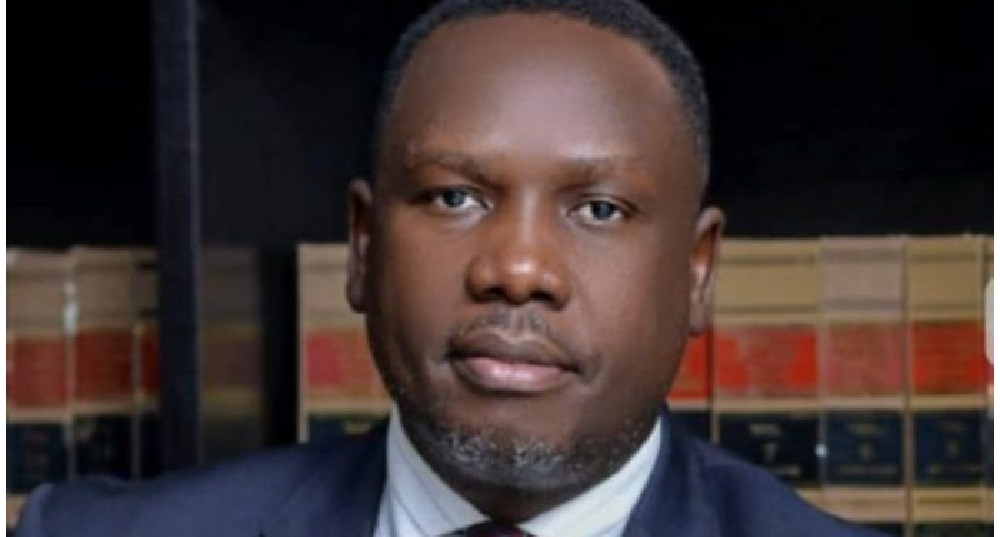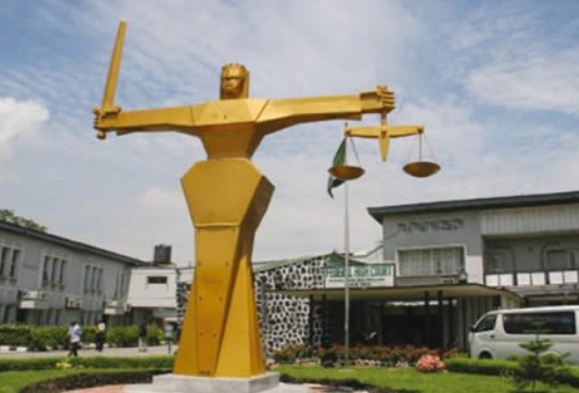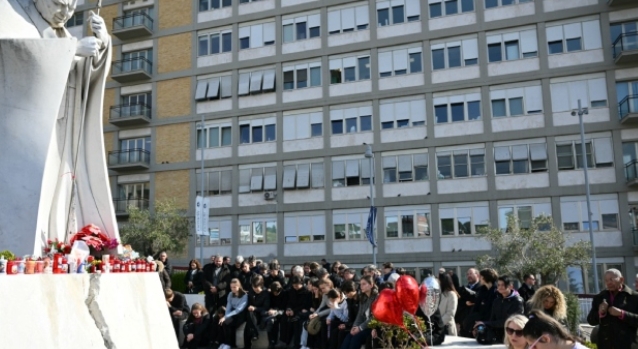News
Why Bwala was demoted as Tinubu’s spokesperson

Daniel Bwala had barely announced himself as the new presidential spokesman when Bayo Onanuga, special adviser to the president on information and strategy, issued a statement saying there was no “presidential spokesman” in that sense.
To boot, Onanuga announced the re-designation of Bwala as special adviser on policy communication to the president — a position that means the latest addition to President Bola Tinubu’s media team will now operate away from the presidential villa.
It all happened in a day’s job — on Monday, November 18.
Bwala was announced as the special adviser to media and public communication on November 14, leading to speculation about who would lead the president’s information management team.
Onanuga had been doing the job, issuing statements and making pronouncements on behalf of the president since the exit of Ngelale Ajuri, who was special adviser on media and publicity, in September.
However, after a meeting of members of the media team at the office of the spokesman at the presidential villa on Monday, there was a reluctance on the part of Bwala to depart.
“It appeared he wanted to start using the office immediately. Incidentally, Onanuga, who moved into the office only recently, is currently with the president in Brazil for the G20 meeting, so it seemed Bwala wanted to take it over in his absence,” an insider told TheCable.
Another insider added that shortly after, Bwala moved into the press briefing room to address State House correspondents — to the shock of everyone.
“There is no issue as to the differences in terms of the responsibility; everybody knows his responsibility,” he told the media when asked what he would be doing.
“I only came to introduce myself to you and the role that was given to me by Mr. President. I told you that role was once occupied by Ajuri Ngelale.
“When Ajuri was there, the nomenclature was special adviser on media and publicity, and now that role is called special adviser on media and public communications (State House). Sunday Dare works from the office of the minister of information.”
He also posted on X: “Today, I resumed officially as the Special Adviser, Media and Public Communications/Spokesperson (State House). ”
“Spokesperson” was not part of his designation when it was announced four days earlier.
‘TINUBU WAS FURIOUS’
In faraway Brazil, Tinubu was said to have been furious on learning of Bwala’s manoeuvre and immediately instructed Onanuga to issue a clarification.
In his statement, Onanuga wrote: “President Bola Tinubu has re-designated the positions of two recently appointed officials in the State House media and communications team to enhance efficiency within the government’s communication machinery.
“The restructuring is as follows: Mr. Sunday Dare – hitherto Special Adviser on Public Communication and National Orientation, is now Special Adviser, Media and Public Communications.
“Mr. Daniel Bwala – announced last week as Special Adviser, Media and Public Communication, is now Special Adviser Policy Communication.
“These appointments, along with the existing role of Special Adviser, Information and Strategy, underscore that there is no single individual spokesperson for the Presidency. Instead, all the three Special Advisers will collectively serve as spokespersons for the government.”
A CASE OF ‘FAILED COUP’
Tinubu had assembled a very large media team — the biggest in Nigeria’s history — and this might have led to the game of intrigues from the day he assumed office.
Dele Alake, commissioner of information and strategy in Lagos state from 1999-2007 when Tinubu was governor, had been positioned to be special adviser on media, strategy and special duties to the president.
It seemed a done deal until Seyi Tinubu, whom insiders say plays a major role in appointments made by his father, decided to torpedo it.
“Seyi brought Ajuri. After the appointment, he asked Ajuri to assert himself from the get-go and that was what Ajuri did. That gave him unfettered access to the president. Other members of the team did not have that access,” another insider told TheCable.
“When Ajuri fell out of favour, Seyi started working on bringing Bwala to replace him. He believes a presidential spokesman should be very vocal and should be on TV every day attacking the president’s critics, so Bwala fitted the bill for him.
“When Bwala’s appointment was announced, Seyi also told him to adopt the same Ajuri strategy: go on the podium, declare yourself spokesman and take over the office.”
Bwala tried the script. It worked for less than 24 hours.
All indications are now that he would be speaking for the office of special adviser to the president on policy coordination, headed by Hadiza Bala Usman, rather than the president.
Credit: TheCable
News
Court orders reinstatement of fired Lagos Assembly Clerk, Onafeko

By Kayode Sanni-Arewa
The National Industrial Court sitting in Lagos has ordered the reinstatement of the fired Clerk of the Lagos State House of Assembly, Olalekan Onafeko.
The order follows an ex parte application to the Court made by Onafeko through his counsel, Yusuf Nurudeen, in a case he filed against Lagos State Government, Lagos State Civil Service Commission, Lagos State House of Assembly Service Commission, The Speaker, Lagos State House of Assembly, Attorney-General of Lagos State and Mr. Ottun Babatunde.
Onafeko was the Clerk of the House before January 13 when Hon. Mudashiru Ajayi Obasa was removed as Speaker, with the then Deputy Speaker, Mojisola Lasbat Meranda elected as the new Speaker.
Obasa’s removal, a decision that sparked controversy within the Lagos House and the ruling All Progressives Congress (APC), also led to Onafeko losing his position, with Babatunde Ottun appointed as his acting replacement.
The claimant in the suit marked: NICN/LA/23/2025 sought for an interim injunction restraining the six defendants from parading any individual including Babatunde as the clerk pending the hearing of the motion on notice for Interlocutory injunction already filed in the suit.
Granting the application, Justice M. N. Esowe in an ex parte order directed that Babatunde should cease to parade himself as Clerk
Esowe ordered that that what was in place in terms of the person in the saddle of the Clerk Office prior to the crisis rocking the House of Assembly should now prevail.
“That both parties shall maintain the peace and status quo ante bellum until the motion on notice is heard and determined,” Esowe ordered.
The judge slated the hearing of the motion on notice for March 3, 2024.
News
Worldwide Prayers For ‘Critically’ Sick Pope Francis

By Kayode Sanni-Arewa
Pope Francis spent his tenth day in hospital Sunday as Catholics around the world prayed for his recovery, the day after the Vatican warned the 88-year-old’s condition was “critical”.
The Argentine pontiff, who is being treated for double pneumonia, suffered a prolonged asthma-style attack on Saturday and required blood transfusions for a low platelet count.
On Sunday morning the Holy See said “the night passed peacefully, the pope rested” — indicating no repeat of the crisis the previous day, Vatican sources said.
But Francis, who had part of a lung removed when he was a young man, is still receiving oxygen through a tube in his nostrils in the papal suite at Rome’s Gemelli hospital.
In a message published Sunday but written in the past few days, the Jesuit thanked hospital staff and said he had confidence in his treatment.
“I am confidently continuing my hospitalisation at the Gemelli Hospital, carrying on with the necessary treatment — and rest is also part of the therapy!” he said.
“I ask you to pray for me,” he concluded in the text published in lieu of his weekly Sunday Angelus, which he normally delivers from a window overlooking St Peter’s Square.
People pray at the feet of a statue of John Paul II outside the Gemelli hospital where Pope Francis is hospitalized for pneumonia in Rome on February 23, 2025. (Photo by Alberto PIZZOLI / AFP)
Francis, who has been head of the Catholic Church since 2013, was admitted on February 14 initially with bronchitis, but his condition has deteriorated since then.
In its evening update Saturday, the Vatican warned his “condition continues to be critical, therefore the pope is not out of danger”.
It said Francis was alert and “spent the day in an armchair even if he was suffering more than” the day before.
It said he had a “prolonged asthmatic respiratory crisis, which also required the application of high-flow oxygen”.
Daily blood tests also “showed thrombocytopenia, associated with anaemia, which required the administration of blood transfusions”, it added.
Thrombocytopenia is a condition that occurs when the platelet count in the blood is too low, which can cause trouble stopping bleeding.
Blood or platelet transfusions, delivered via an intravenous (IV) line, are given to people who are either bleeding heavily or at very high risk of bleeding, according to the US National Institutes of Health (NIH).
“The pope gets worse,” headlined Italy’s Corriere della Sera newspaper on Sunday, while La Repubblica described it as the “darkest day” at the Vatican.
Well-wishers have been leaving candles outside the Gemelli since Francis was admitted, and a special mass was planned for Sunday evening in Rome.
“I am praying for him, for his health, because he is a special person for all of us,” Italian teacher Ilde Zito told AFP at the hospital.
Prayers and messages of solidarity also came in from among the almost 1.4 billion Catholics across the globe, alongside other Christians and world leaders.
In the cathedral of Buenos Aires, where Francis was once archbishop, TV screens at the entrance showed images of then Jorge Bergoglio’s good works, and the priest held a special mass.
“He is strong, he has always been strong, but there is nature. I know he is very ill and old. I hope he recovers, but it makes me sad,” Hector Armando Diaz, 76, a retired sales clerk, told AFP there.
Across the world in Iraq’s northern city of Mosul, a former bastion of the Islamic State group that Francis visited in 2021, at least a dozen churches also held prayers for him.
“This is the least we can do to express our solidarity, love, and appreciation for this great person,” said university professor Adnan Hadi.
Mexico’s president, Claudia Sheinbaum, offered her hopes on social media for a speedy recovery for the “great humanist” Francis, the first pope from the Americas.
Francis’s continued hospitalisation has sparked huge concern about his health but also speculation about whether he might step down.
He has always left the door open to following his predecessor, Benedict XVI, who in 2013 became the first pope since the Middle Ages to resign.
But he has repeatedly said it was not the time.

The pope maintains a punishing work schedule. He carried out a mammoth 12-day tour to the Asia-Pacific in September, but has suffered increasing health issues.
He underwent colon surgery in 2021 and an operation for a hernia two years later. He is overweight and has constant hip and knee pain, which forces him to use a wheelchair.
AFP
News
Liverpool thrash Man City, Go 11 Points Clear

By Kayode Sanni-Arewa
Liverpool took a big step to winning the Premier League, crushing an uninspiring Manchester City in a showdown on Sunday.
Mohamed Salah stole the show, scoring one and providing an assist to send Liverpool 11 points clear at the top of the table although they have played a game more.
The Egyptian opened the scoring with his 30th goal of the season before setting up Dominik Szoboszlai to double the lead before half-time.
Just days after exiting the Champions League to Real Madrid, this was another sobering defeat for the dethroned English champions, who are now 20 points adrift of the leaders.
So often during Pep Guardiola’s glorious reign, Liverpool have come up just short in English football’s great rivalry of recent years.
However, their time to match Manchester United’s record of 20 English top-flight titles now appears just months away in Arne Slot’s first season in charge.
Arsenal’s shock 1-0 home defeat to West Ham on Saturday had eased the pressure on Liverpool, that had built after dropping points in two of their last three games at Everton and Aston Villa.
A trip to the Etihad has for so long been the stiffest test of all, but City’s defensive frailties were easily exposed and they also badly missed the presence of the injured Erling Haaland in attack.
Liverpool, by contrast, had their talisman fit and firing as Salah took his staggering tally this season to 25 goals and 16 assists in 27 Premier League appearances.
However, their time to match Manchester United’s record of 20 English top-flight titles now appears just months away in Arne Slot’s first season in charge.
Arsenal’s shock 1-0 home defeat to West Ham on Saturday had eased the pressure on Liverpool, that had built after dropping points in two of their last three games at Everton and Aston Villa.
A trip to the Etihad has for so long been the stiffest test of all, but City’s defensive frailties were easily exposed and they also badly missed the presence of the injured Erling Haaland in attack.
Liverpool, by contrast, had their talisman fit and firing as Salah took his staggering tally this season to 25 goals and 16 assists in 27 Premier League appearances.
The Egyptian fired the visitors in front on 14 minutes thanks to a brilliantly executed set-piece routine.
Alexis Mac Allister’s corner was flicked by Szoboszlai into Salah’s path and his shot deflected off Nathan Ake past the despairing dive of Ederson.
At the other end, City’s own Egyptian international showed his ability to finish, but Omar Marmoush had strayed offside before being played in by Phil Foden.
City winger Jeremy Doku was skipping past Trent Alexander-Arnold at will, yet the Belgian consistently failed to deliver a telling cross or shot.
Salah was not so forgiving as he raced onto a long ball over the top and teed up Szoboszlai to wrong-foot Ederson.
The final outcome could have been much more humiliating for City had Liverpool had been as accurate on the counter-attack after the break.
Curtis Jones had a third goal ruled out by a VAR review for offside after Szoboszlai just failed to time his run through the heart of the City defence.
Ederson was forced into a stunning save from Luis Diaz and only a brilliant last-ditch tackle from Abdukodir Khusanov denied Szoboszlai a second.
Marmoush scored a hat-trick in last weekend’s 4-0 win over Newcastle and remained a lively threat as he flashed another effort across the front of Alisson Becker’s goal.
But City lacked the end product to make nearly 70 percent possession count.
Despite an eighth league defeat of the season, Guardiola’s men remain in fourth and will be confident of securing their place in the Champions League next season with a top-five finish likely to be enough.
However, after an unprecedented run of four consecutive titles, City look like yesterday’s team with Liverpool now champions in waiting.
-

 Metro20 hours ago
Metro20 hours agoInsecurity! Gunmen invade church, slash pastor’s 2 fingers
-

 Metro20 hours ago
Metro20 hours agoFire engulfs MTN office in Oyo
-

 Foreign19 hours ago
Foreign19 hours agoPentagon set to sack 5400 staff as attack hits Trump’s downsizing plan
-

 Metro19 hours ago
Metro19 hours agoDanger averted as police rescued six kids from collapsed building
-

 Sports19 hours ago
Sports19 hours agoAtalanta coach makes a U-turn says he never knew his comment could offend Lookman
-

 News19 hours ago
News19 hours agoNSCDC, Tantita intensify joint efforts to combat oil theft in Niger Delta
-

 Sports20 hours ago
Sports20 hours agoEnd of road for Arsenal, may not win any shield this season – Report
-

 News13 hours ago
News13 hours agoThai lady arrested at Lagos airport with boxes of illicit drug consignments







